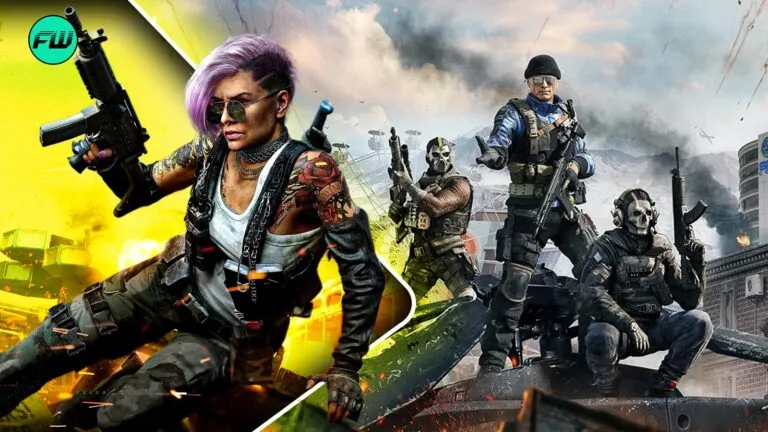Activision’s Controversial New Ad Feature in Call of Duty: Black Ops 6 and Warzone
In a move that has not gone unnoticed by the gaming community, Activision has rolled out in-game advertisements in their massively popular titles, Call of Duty: Black Ops 6 and Warzone. As part of a bid to generate additional revenue, these advertisements have left players feeling frustrated and disillusioned with a franchise they once held dear.
The Introduction of Advertising in Call of Duty
The latest development comes as Activision seeks new revenue streams amidst a changing landscape in the gaming industry. With the growing success of free-to-play models, many companies are looking at in-game advertisements as a potential goldmine. Unfortunately, this shift has drawn sharp criticism from the loyal fanbase of Call of Duty.
Players Shocked by the Imposition of Ads
When players first discovered the features being introduced into the game, including ads for cosmetic bundles and other in-game purchases, a wave of outrage swept across social media. Testimonials flooded platforms such as Twitter and Reddit, where players expressed their discontent over what they described as “despicable” and “immoral” practices.
“Feels Like Mobile Gaming”
Gamers took to their keyboards to voice their frustrations, with many likening their experience to that of mobile games notorious for aggressive advertising tactics. One player tweeted, “At this point, it really feels like opening up a mobile game,” capturing the sentiment of many who have shared their complaints. The perception that they must seamlessly switch from gameplay to advertisements has struck a nerve among hardcore players who value immersion and gameplay over commercial interruptions.
A Class Action or Just a Casual Outcry?
While the backlash has been mostly vocal, some players are calling for more organized responses, including potential class-action lawsuits. Attorneys specializing in entertainment law are monitoring the situation, considering whether Activision’s methods may breach consumer protection laws.
Understanding Activision’s Perspective
In its defense, Activision has articulated a need for these ad revenues. With profit margins thinning and the cost of developing AAA titles rising, companies are often forced to adapt their monetization strategies. Activision’s executives argue that in-game advertising allows them to implement lower base prices for the core game while still netting additional revenue from in-game purchases.
Monetization Strategies: Balancing Act or Too Much?
The recent changes raise concerns about the balance between monetization and player experience. While players are often willing to spend money to enhance their gameplay through cosmetic items and other perks, the integration of ads may feel like a violation of the pact between the developers and its community.
In-Game Bundles and Their Reception
In addition to the ads, Activision has been pushing various in-game bundles that allow players to acquire special skins, weapons, and other content. The response to these bundles has been mixed; some players are fans of new content that enhances their game, while others view it simply as another way to squeeze money out of them.
Players Voice Their Opinions
Comments such as, “I love the new skins, but the fact that I’m subjected to ads is just rude” reflect the complex relationship players now have with the franchise. Some may be tempted to purchase but feel their enjoyment is marred by the marketing strategies employed by Activision.
Comparisons to Other Titles
Interestingly, other gaming franchises have experimented with in-game ads, with varying degrees of success and acceptance. Titles like League of Legends and Fortnite have integrated promotional content, yet they managed to maintain a level of integrity with their player base by keeping such content relevant and creatively integrated into gameplay.
Potential Impact on the Future of Call of Duty
The long-term consequences of this advertising strategy for the Call of Duty franchise could be dire. If Activision continues to alienate its player base by prioritizing revenue generation over user experience, it risks losing its core audience. Gamers often describe their relationship with a title based on the “fun factor”—the balance between competition and enjoyment.
Community Reactions and the Bottom Line
Over the past few weeks, community backlash has evolved into a full-fledged movement. Dedicated gaming forums and platforms like Reddit have witnessed a surge in posts expressing dissatisfaction, while popular gaming influencers are voicing concerns to their millions of followers. The conversation is no longer just a momentary uproar; it appears to be galvanizing a grassroots campaign against the perceived commercialization of beloved franchises.
The Future of Gaming Advertising
While some players understand the economics behind game development, many staunchly believe that monetization strategies should enhance rather than detract from gameplay. Whether Activision will heed this warning or double down on its strategy will significantly influence how future titles are developed and marketed.
Conclusion: A Crossroad for Activision
As Call of Duty: Black Ops 6 and Warzone continue to evolve, the question remains: will Activision adapt its business practices in response to player feedback, or will the company remain steadfast in its pursuit of profit through advertising? For the sake of its future, and perhaps the very soul of gaming itself, Activision stands at a crossroads, one that could define or destroy its legacy within the industry. Only time will tell if the gaming community’s voice resonates with the decision-makers at Activision.







